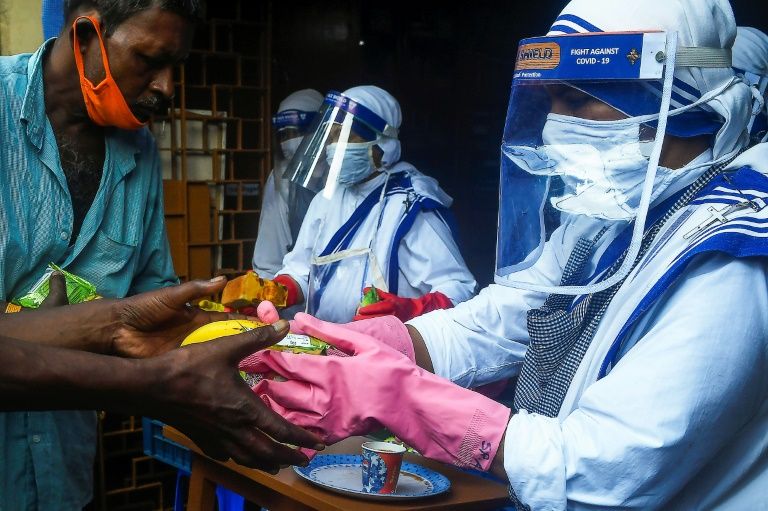India tops four million virus cases; Australia arrests protestors
New Delhi (AFP) – India has become the third country to pass four million coronavirus infections, setting a new record daily surge in cases on Saturday as the pandemic shows no sign of peaking.
The 86,432 new cases took India to 4,023,179 infections, third behind the United States which has more than 6.3 million and just trailing Brazil on 4.1 million.
The growing caseload comes after the World Health Organization said Friday it did not expect widespread immunisation against Covid-19 until mid-2021, insisting it would never endorse a vaccine that has not been proven safe and effective, over concerns around the rush to develop a jab for the virus.
As governments around the world enforce measures to slow the virus, police in Australia — which has reported 26,200 cases and 748 deaths — arrested more than a dozen protesters in Melbourne on Saturday for deliberately flouting the city’s stay-at-home orders.
The Indian government has eased restrictions in a bid to revive the economy but faces the world’s fastest growing number of cases at more than 80,000 a day and the highest daily death toll at more than 1,000.
The country’s caseload has soared from three to four million in just 13 days, faster than the US and Brazil.
The pandemic is now spreading through rural areas which have poor health facilities but is also resurging in big cities like Delhi and Mumbai.
Maharashtra state, which includes Mumbai, has been at the centre of the crisis in India since a nationwide lockdown was imposed in March. It still accounts for nearly a quarter of the new daily cases across the country of 1.3 billion.
– Economic havoc –
Worldwide, Covid-19 has killed more than 870,000 people and infected more than 26 million, as well as upending hundreds of millions of lives and wreaking havoc on the global economy.
Around the world, businesses and individuals are counting the cost of the pandemic, as flare-ups continue to force governments into imposing restrictions.
France registered its highest daily figure on Friday since last March, as Paris and other cities start requiring face masks in all public areas, including for children above 11 who returned to school this week.
Even in areas where curbs have eased, those who can work from home often prefer to keep doing so rather than return to the office.
In London’s normally bustling centre, eateries once packed with customers are suffering.
British Prime Minister Boris Johnson’s government is trying to encourage people to return to the office, but that is easier said than done.
Oil giant BP has been actively encouraging non-frontline staff to work from home, with many of Barclays, HSBC and Lloyds banks staff also working remotely.
However, some sectors have seen big gains.
Suppliers of personal protective equipment have seen orders rocket.
Malaysian rubber glove manufacturer Top Glove said Friday it is seeing orders for 11-12 billion a month, compared with 4.5 billion prior to the pandemic.
And it does not appear that demand for such equipment is likely to vanish soon.
While the UN health agency welcomed the fact that a “considerable number” of vaccine candidates had entered final stage trials — which typically involve tens of thousands of people — it tempered expectations for a quick silver bullet.
WHO spokeswoman Margaret Harris said that “in terms of realistic timelines, we are really not expecting to see widespread vaccination until the middle of next year”.
Disclaimer: Validity of the above story is for 7 Days from original date of publishing. Source: AFP.


